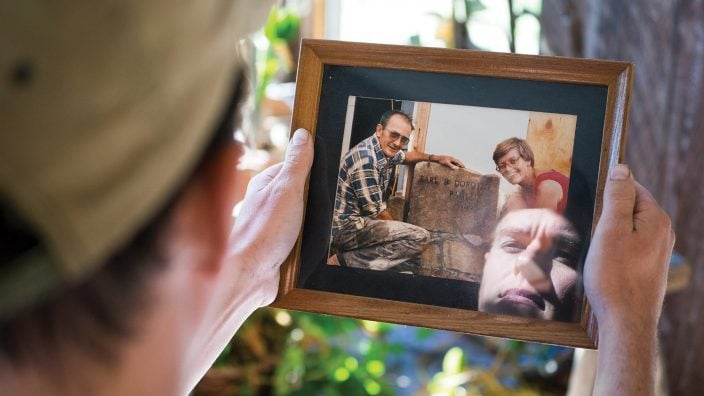Applications for Ohio Farm Bureau Health Plans now available
Members have three ways to apply: contacting a certified agent, calling 833-468-4280 or visiting ohiofarmbureauhealthplans.org.
Read MoreOut mowing one day, Lyndsey Teter saw a pink flash out of the corner of her eye. A 30-pound piglet had just wandered onto her Knox County property. Little did she or her husband, Seth, know at the time that the unclaimed pig would be the start of their pasture-raised pig business.
“When people say ‘how did you start pig farming,’ we say pig farming found us,” Seth laughed as he and his wife shared stories about the pig waiting on the porch for them to come home from work and how it lived in the garage during cold spells.
“We had no idea what we were doing; it was comical,” Lyndsey said. “It took four hours to figure out how to get it in the trailer and then when the butcher asked me for cutting instructions, I had no clue what to order. You mean there are things other than bacon and pork chops?”
Turns out there are – like jowl and belly bacon, loin roasts and hocks. Today the Teters, including their two daughters, 7-year-old Molly and 5-year-old Eleanor, know exactly where those cuts of meat come from on a pig. The couple’s learning curve has long been over – they now conduct hands-on classes in Columbus on how to break down a whole hog into different cuts.
“We remember that feeling of not knowing where our food comes from and how it’s produced,” Seth said. “Seeing other people make that connection … that’s exciting.”
A farm in Tuscarawas County
Seth and Lyndsey grew up in Washington Court House and while neither one lived on a farm, they both felt an affinity for the land. Lyndsey enjoyed playing on her family’s 10-acre wooded lot, and Seth loved the trips to his grandparents’ old farm, 21/2 hours away in Tuscarawas County.
“It was a magical world there,” Seth said. “I‘d hear stories of what the farm used to be, and in college I called Grandpa up one day and said ‘Grandpa, I don’t know how to be a man. I’m going to come up to the farm. You’re going to teach me to shoot a gun, catch a fish and change the oil.’”
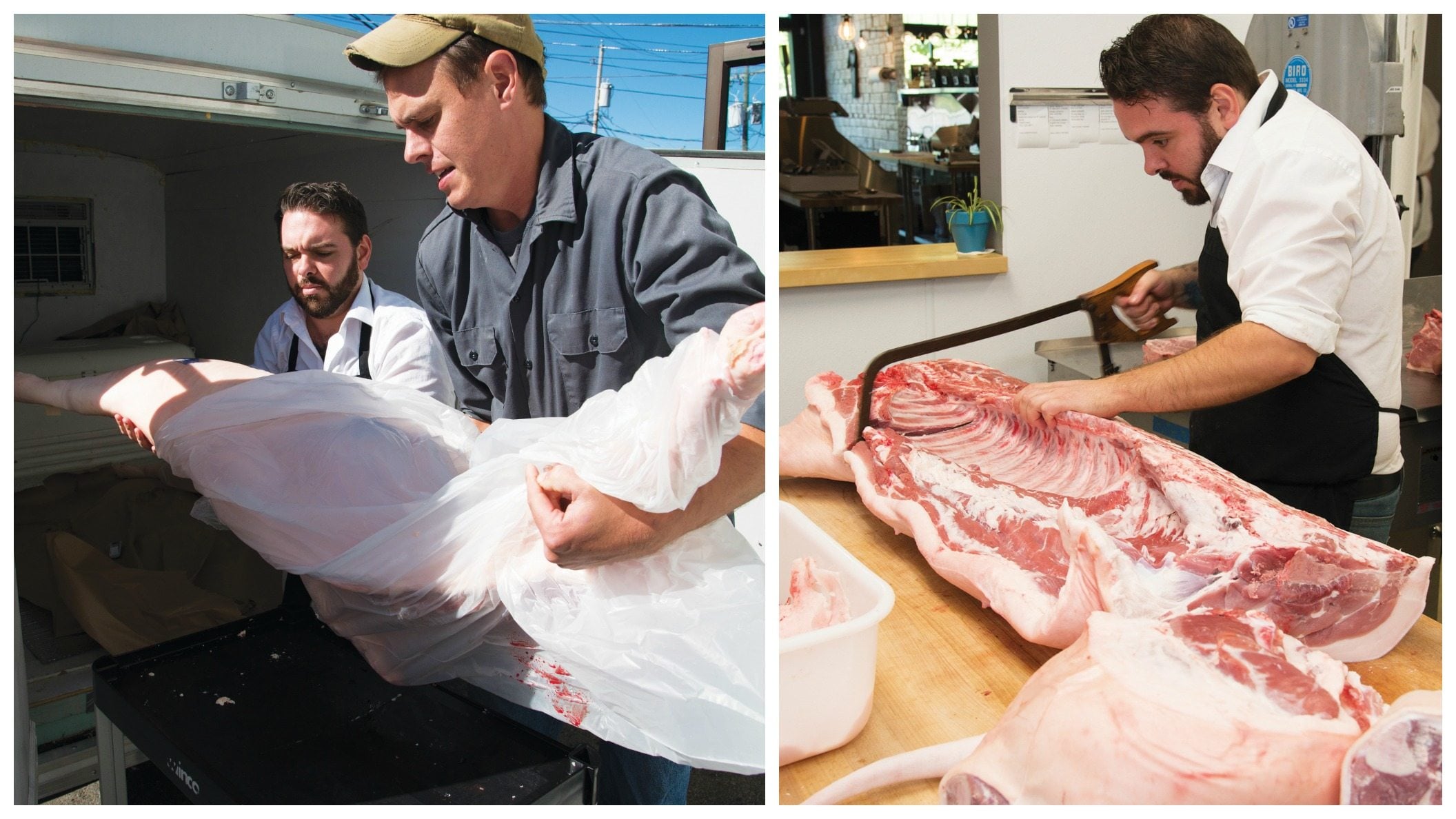
Seth eagerly took in the teachings of his grandfather, Earl Paulus, who was a woodworker and for years raised and slaughtered turkeys until the bottom fell out of the market in the 1960s. He moved on to pigs and chickens but when the chicken house burned down, Earl declared he was done with farming. His advice to Seth? “Don’t even think about it.”
But Seth couldn’t get the idea of farming out of his head after he finished college with a journalism degree. When he saw a billboard with Ohio Farm Bureau’s name on it, he blindly sent in his resume. Shortly after, a communications position opened up and Seth was hired. For 11 years he worked side-by-side with agricultural experts and learned all about the industry and marketing, particularly marketing through social media. Readers of this magazine got to learn about agriculture by exploring it through Seth’s articles. “He’s a gifted writer and storyteller,” said Our Ohio Editor Pat Petzel. “For all of those years, he told the stories of Farm Bureau members from across the state, but the story that was missing was his and Lyndsey’s. Also missing was a farm – but that soon changed.”

While Seth worked for Ohio Farm Bureau, Lyndsey was writing for Columbus area newspapers and loved living the city life. She got an inkling things were going to change when Seth built a woodshop in their 500-square-foot apartment.
“He was restless and needed to stretch his legs. When we started looking for a house, he kept taking me farther and farther out of Columbus, and the houses and land kept getting cheaper and cheaper,” she said.
Six Buckets Farm
The Teters eventually bought an old 10-acre farmstead in Knox County that needed so much work the home inspector said maybe this wasn’t the best property for them. “We didn’t even know how to swing a hammer,” Lyndsey said. But the couple decided fixing up the farm would be their “career tech class.” It was a lot of blood, sweat and tears, and they used the cheapest and most effective tools to clean up the property – six 5-gallon buckets, which is where the name Six Buckets Farm comes from.
“Those six buckets summed up our experience – a lot of labor and minimal infrastructure,” Seth said.
When that stray pig wandered onto their property, the Teters liked its inquisitive nature so much they decided to start raising pigs. Since they didn’t have a barn or money to build one, they bought heritage breed pigs, which are well suited for pasture-based farms. The couple’s marketing was word-of-mouth and through social media. It wasn’t long before they had more than 100 families in Columbus who were willing to buy half or quarter pigs from them.
“I’d post on Facebook that I had pigs ready and they would buy them every time,” said Lyndsey who made the 45-minute plus drive to Columbus pulling a trailer that the couple nicknamed the “hambulance.”
That delivery drive more than doubled in August 2015 when the couple moved to New Philadelphia to take over Seth’s grandparents’ farm and begin the process of revitalizing livestock production on it. Moving onto the 90-acre farm has been a dream come true. Seth found a communications job at a local manufacturer, and they now have the space to expand their farm operation. They are looking into processing the pigs themselves and holding on-farm butchery classes. The couple recently started building a hoop barn to house the pigs in the winter to help preserve the land.
The Teters’ business model is deliberately nontraditional. They want to stick with pasture-raised pigs, which take at least two months longer to raise than the more common breeds of pigs.
“We became the middleman, which has allowed us to raise fewer animals. We’re doing all the marketing, finding the customers and taking the meat to the customer’s doorstep,” Seth said. Last year they raised about 100 pigs and sold nearly 15,000 pounds of pork by “schlepping it into Columbus, one pork chop at a time,” Lyndsey laughed.
They also picked up their first wholesale buyer last year by communicating with The Butcher & Grocer, a small food and meat shop, through Facebook. The Teters started delivering two pigs a week to the suburban Columbus store where a team of butchers break them down and find ways to use all of the animal.
“We need customers who are willing to take the whole animal and not just the bacon or pork chops,” Seth said. “We’re trying to change the culture. There are a few chefs who know how to build a menu around a whole animal and have the customer base that allows them to do that.”
With a third baby on the way, the couple are thrilled that their children are growing up in the “magical world” that Seth visited as a child. (Editor’s Note: The Teters welcomed a baby girl at the end of December.)
“They have the best lives. I’m so jealous. I open the door and they go roam,” Lyndsey said of her children. “They know where their meal comes from and have taken part in raising that pig — that’s just normal to them.”
Featured Image: Seth reflects on his grandparents, Earl and Dorothy Paulus.
Online extra:


Members have three ways to apply: contacting a certified agent, calling 833-468-4280 or visiting ohiofarmbureauhealthplans.org.
Read More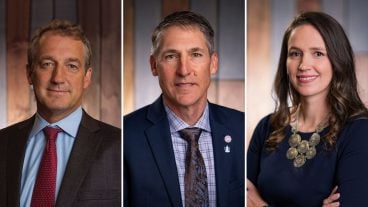
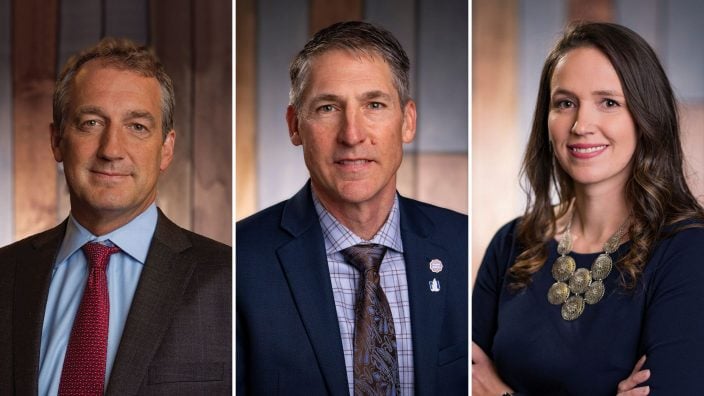
Bill Patterson, Cy Prettyman and Adele Flynn will continue to serve as officers for Ohio Farm Bureau Federation.
Read More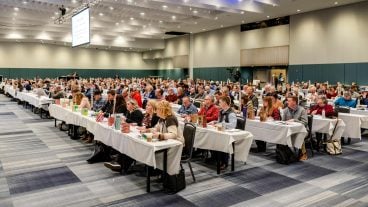
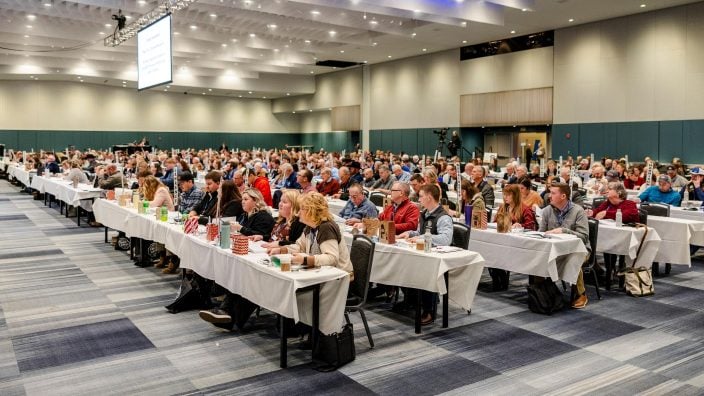
Delegates discussed many topics impacting agriculture including farmland preservation, local foods, and succession planning.
Read More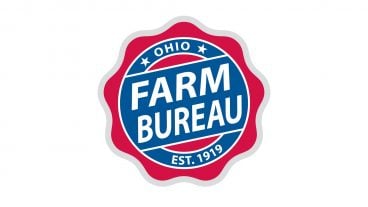
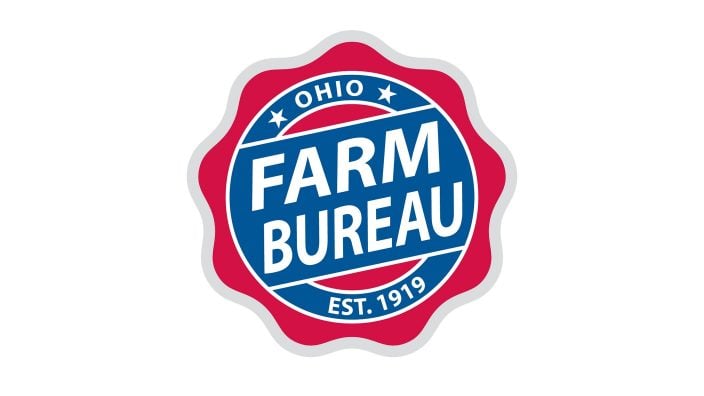
Twenty-six farmers govern the state’s largest farm and food organization.
Read More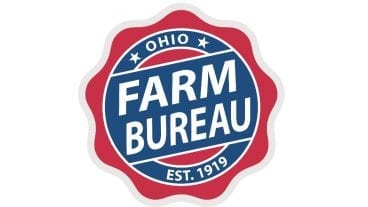
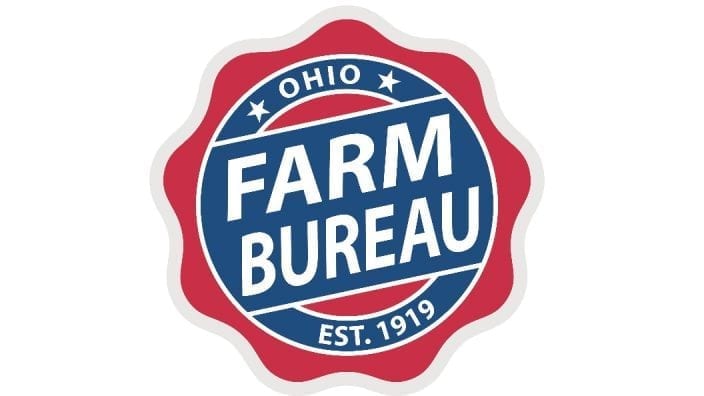
The 2025 recipients are Fred Cooke (posthumous) of Richland County, Marvin Dietsch of Williams County, Steven Knollman of Hamilton County and Michele Miller (posthumous) of Ottawa County.
Read More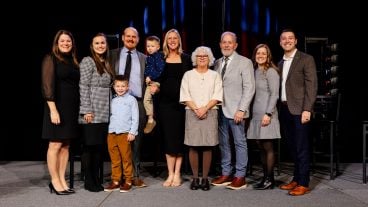
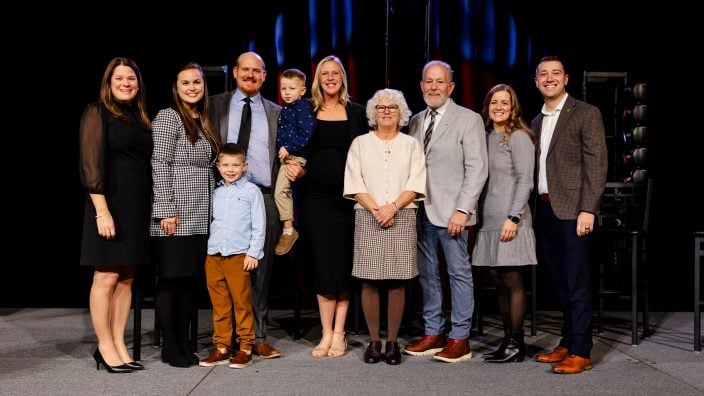
Nathan and Jill Parriman grow seasonal crops, including Christmas trees, pumpkins and cut flowers, providing U-cut experiences that invite customers to engage directly with agriculture.
Read More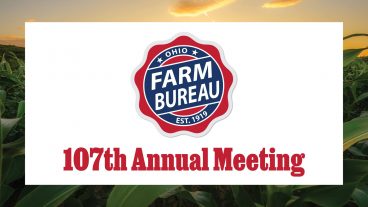
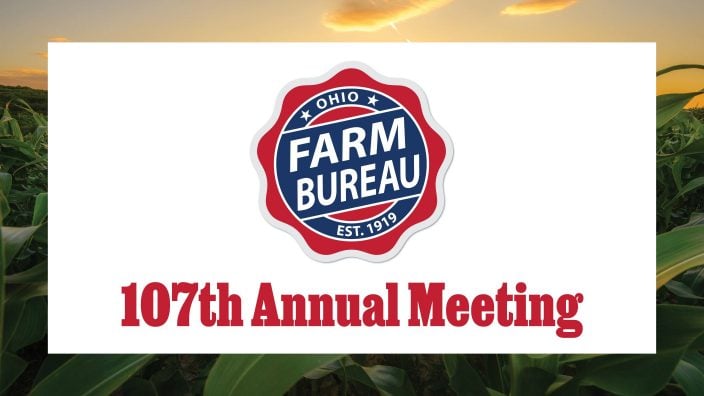
The 2025 Distinguished Service Award recipients are Craig Adams, Mike Townsley, and Kellogg Farms, Kurt Farms and Stateler Family Farms.
Read More

Ohio Farm Bureau Treasurer Adele Flynn participated in the meeting, representing Ohio farmers.
Read More

For Ohio and PJM region, the outlook is reassuring—ample reserves and strong planning should keep the power on.
Read More

The average price for a classic holiday feast for 10 in Ohio will cost $55.87.
Read More